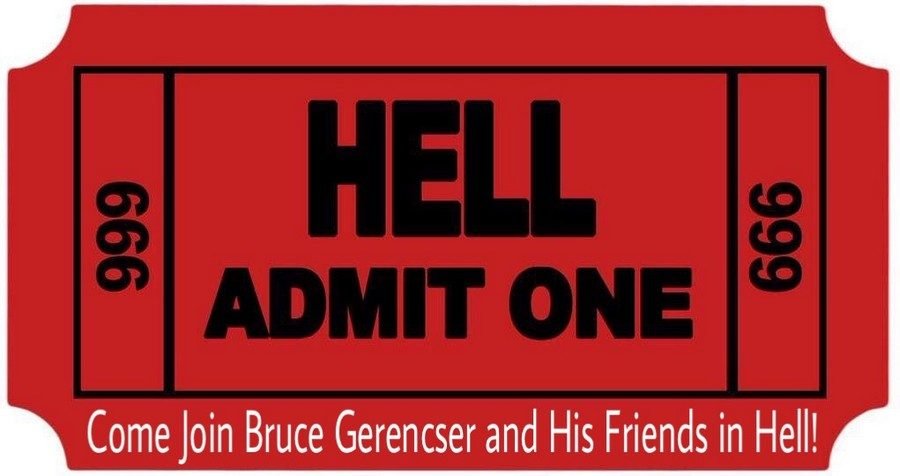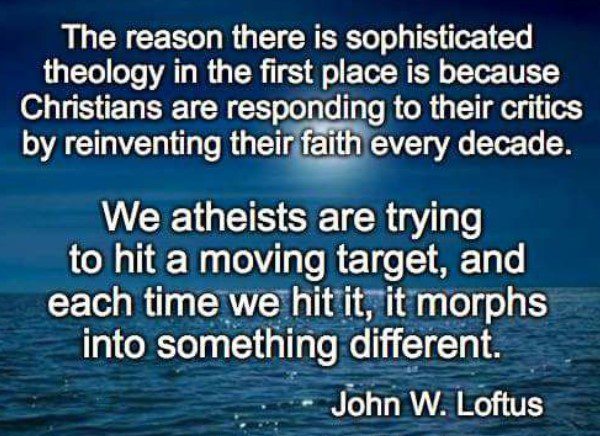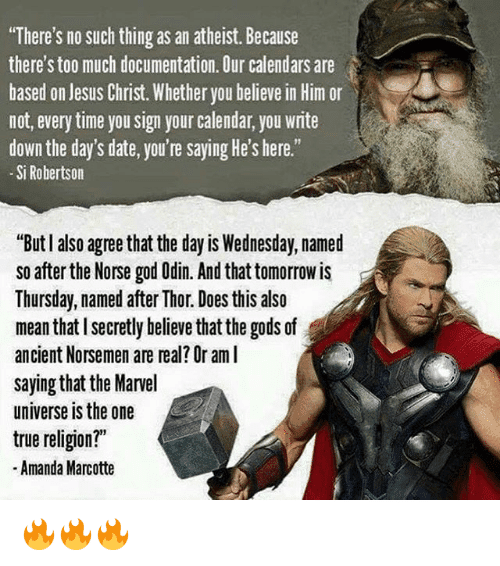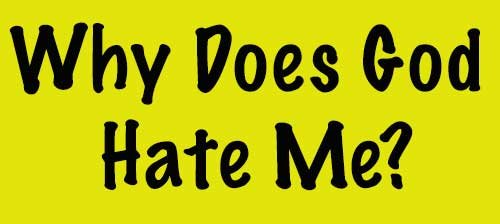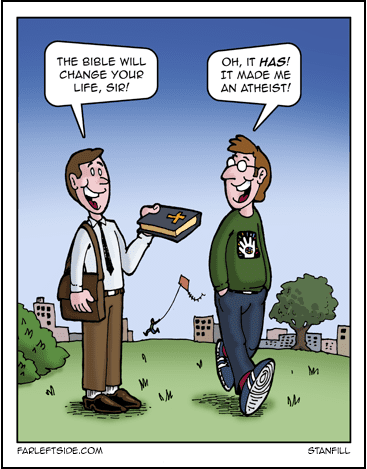
You want out. You know the religious community you’re a part of is not good for you. You know that your pastor thinks he speaks for God, and you have come to see the arrogance of such a claim. Your gut is screaming to you RUN! RUN!RUN! but you are afraid.
You fear God will chastise or kill you for your rebellion. You fear losing your spouse, children, extended family, and friends. You fear losing the close connection you have with those you go to church with.
As many do, you search the internet for answers. Perhaps a Google search has brought you to this blog. Much of what I write resonates with you. You find yourself nodding and saying amen. But . . .
I am an atheist. Atheists are routinely despised and hated in America. While my writing makes sense to you, you fear becoming like me. You fear that if you truly embrace what your heart/mind is telling you, you might become an atheist. And this scares the shit out you.
I wish I had comforting words to share with you, but I don’t. This blog does not exist for the purpose of converting Christians to atheists. I have no interest in being an evangelist for atheism. I am far more interested in helping those who have been hurt by religion, people who want a way out, but can’t seem to find it. At best, I am a facilitator, one who helps others as they journey through life.
My journey has brought me from Evangelicalism to atheism. Much like many Christians-turned-atheists, my journey had a lot of stops before I reached the conclusion that I was an atheist. For a time, I was a liberal Christian, then a universalist, and later an agnostic. Each and every step of the journey was/is difficult. Atheism and humanism are where I finally found the peace and purpose I was looking for. Your journey may not be the same as mine, and that’s okay.
I want to encourage you to continue to walk forward. Listen and read. Investigate. Challenge. Question. Be skeptical. When you come to what seems to be a resting place, ask yourself, why am I stopping here? Can I live with where I am? Do I have peace? Does this make sense to me?
Many have run from Fundamentalism only to find themselves tangled up in a less aggressive form of Christianity. They abandon the social Fundamentalism of their previous churches, only to find themselves ensnared by the same theological Fundamentalism they left. (See Are Evangelicals Fundamentalists?)
Some people find rest and peace in liberal/progressive Christianity. Others find that liberal Christianity is just a temporary stop along the slippery slope of reason. Many people, unwilling to abandon spirituality altogether, join groups such as the Unitarian Universalist church or one of the many “spiritual” religions of the world.
Some, like me, keep on traveling until they embrace agnosticism or atheism. They have let reason guide them every step of the way. Are they more enlightened than others are? No. While I have no need for a deity or a religion, I recognize that many people do. In their darkest moments, many people need a God to cling to, a transcendent being who gives them hope. I do not consider such people ignorant or foolish. If that is what gets them through the night, who am I to object? As long as their religion is kept within the walls of their home or church, they will get no argument from me.
Every one of us is on a journey through life. We know where we have been, we know where we are, but we do not know where we will end up. If you had told me twenty years ago that I would not be a pastor and that I would be an atheist, I would have laughed uncontrollably at such a foolish notion. Yet, here I am, an atheist.
I do think that religious Fundamentalism is a pernicious evil that we should work very hard to eradicate. It is alarming to what degree Christian Fundamentalists control the Federal government these days. It is in everyone’s best interest to neuter religious Fundamentalism wherever it is found. When Fundamentalists gain political power, freedoms are lost and people die.
This blog is meant to be a bright flashing light along the journey of life. It says to Evangelicals that there is deliverance from the bondage they are in. You need not fear becoming an atheist. No one will try to convert you. You WILL be challenged and encouraged to exercise reason as you continue your journey, however there are no altar calls at my church. Read, study, and ask questions. Don’t be afraid to go off the beaten path. Sometimes, in an out-of-the-way place, you will find what you are looking for.
Here is the gist of what I am saying in this post. I don’t care one bit whether you become an atheist. I want to help facilitate your journey. I want to encourage you to walk openly, with honesty and integrity. Remember the old church song, Where He Leads I will Follow? Instead of God leading the way, let reason and evidence lead the way. Be willing to investigate and challenge everything you say you believe.
Yes, you MIGHT end up becoming an atheist, and if you do, I will gladly welcome you to the club of the damned. However, maybe you will stop somewhere else on the road of life, and as long as you have walked openly, with honesty and integrity, I will say, good for you.
Bruce Gerencser, 68, lives in rural Northwest Ohio with his wife of 47 years. He and his wife have six grown children and sixteen grandchildren. Bruce pastored Evangelical churches for twenty-five years in Ohio, Texas, and Michigan. Bruce left the ministry in 2005, and in 2008 he left Christianity. Bruce is now a humanist and an atheist.
Your comments are welcome and appreciated. All first-time comments are moderated. Please read the commenting rules before commenting.
You can email Bruce via the Contact Form.



